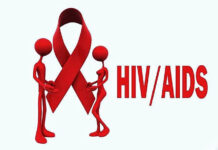In the heart of Nigerian cities and tucked away in rural villages, family ties run deep, intertwining with rich cultural traditions that shape every aspect of life. Picture a family gathering, where generations come together, sharing stories passed down through the ages. Amidst laughter and feasting, there’s an unspoken bond, a sense of belonging anchored in tradition. Yet, in this age of technological advancement, where DNA testing promises to unveil hidden truths, the clash between tradition and modernity emerges, challenging age-old beliefs and reshaping familial dynamics.
While DNA testing offers the allure of uncovering ancestry and verifying paternity, it also threatens to disrupt the delicate fabric of Nigerian family structures. In Nigerian culture, the notion of family extends beyond blood relations, encompassing adopted children, close friends, and even distant relatives. For instance, in many Nigerian households, children are raised by a collective of parents, including aunts, uncles, and grandparents, blurring the lines of biological parenthood.

Additionally, inheritance and land ownership often rely on customary laws and familial consensus rather than strict biological ties.
Consider the case of a child raised by a loving uncle who steps in as a father figure after the untimely passing of the biological father. Despite any genetic disparities, the familial bond forged through care, support, and shared experiences is irreplaceable. Introducing DNA testing into such scenarios could disrupt these relationships, causing emotional turmoil and undermining the very essence of family unity.
Moreover, Nigeria’s diverse cultural landscape encompasses myriad traditional practices and belief systems, many of which prioritize collective identity over individual ancestry. In Igbo culture, for instance, the concept of “Nnaanyi” or “fatherhood of the community” holds significant sway, recognizing the community as a whole in the upbringing of children. Similarly, in Yoruba culture, the extended family, known as “egbe,” plays a crucial role in shaping a child’s identity and sense of belonging.
In light of these deeply ingrained cultural values, the emphasis on biological lineage through DNA testing may be viewed as an affront to traditional norms and customs. Instead, Nigerians may opt to preserve the sanctity of familial bonds forged through shared experiences, mutual support, and cultural heritage, relegating DNA testing to the realm of curiosity rather than a determinant of familial relationships.
In navigating the intersection of tradition and modernity, Nigerian families must carefully balance the allure of DNA testing with the preservation of cultural heritage and familial unity. While technology offers the promise of uncovering genetic truths, it is essential to recognize the multifaceted nature of family dynamics in Nigerian society, where love, care, and shared experiences transcend biological ties.
Ultimately, the strength of Nigerian families lies in their ability to uphold cherished traditions while embracing the complexities of the modern world, forging bonds that withstand the test of time




